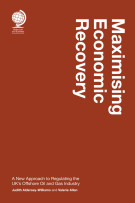Adjusting the numbers – the future of finance in law firms
22 July 2021

Andy heads ArmstrongWatson’s nationwide services to the legal sector, covering all of the firm’s offices, and has specialised exclusively in the legal sector since 2004. He provides compliance accounting, tax and SAR services to law firms as well as helping firms to improve by providing benchmarking, strategic consultancy, merger assistance, structural reviews and training courses.
Andy understands and proactively informs law firms on issues that may impact on them. He speaks at national solicitors’ conferences and is a regular contributor to the legal press. He is co-author of the Law Society’s toolkit on financial stability. Andy works with law firms throughout the UK and is the author of Adjusting the Numbers: The Future of Finance in Law Firms
Andy Poole, Legal Sector Partner at Armstrong Watson, discusses the effect of COVID-19 on law firm management. Did it change the requirements of managing a law firm? How do we move into the future?
Adjusting the numbers – the future of finance in law firms
I was recently honoured to be asked to write part of a new book by Globe Law and Business on the future of finance in law firms. In this new book, I look to the future of law firms and extend on the principles in my first book, in which I covered the basis of running a successful law firm. I argue that whilst the historic principles remain, the profession was slowly modernising and then COVID-19 hit like a thunderbolt, moving the requirements of managing a law firm to another level completely – and there is no turning back as we move into the future.
I conclude that there is one key word to take forward to describe future management of the finance of law firms – and that is Flexible.
There will be a need for flexible:
- Fee earning – in terms of timing, location, method of services, self-service, automation and processes.
- Office environments.
- Employment/self-employment status – the rise of self-employed consultants both within law firms and within virtual/platform firms.
- Reward and pricing.
- Ownership models.
- Outsourcing – turning fixed costs to variable costs, including fee earning.
- Off-shoring/North-shoring.
- Management – and the use of professional managers or CEOs.
For more details behind this, including coverage of historic foundations, the financial impact of COVID-19 on law firms, the anticipated impacts on law firms as we emerge from the pandemic, lessons learned from the COVID-19 experience, and law firms of the future, copies of the book can be purchased at Globe Law and Business.













Any comments - send us an email